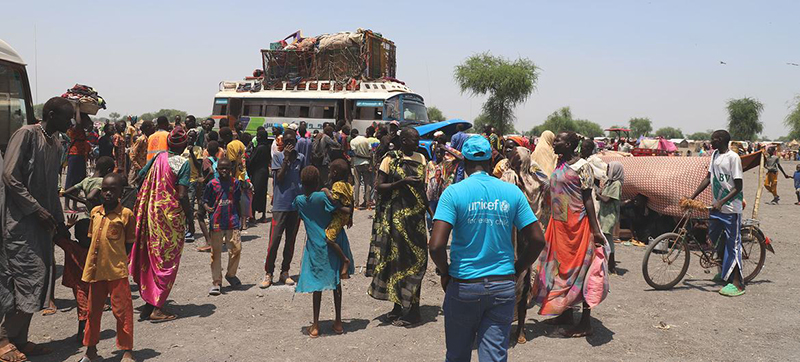Sudan: ‘Civilians need life-saving assistance now,’ says UN relief chief

Amid the deepening crisis driven by warring militaries in Sudan, the UN announced on Tuesday an additional allocation of $20 million from its Central Emergency Response Fund (CERF) to aid civilians caught up in the turmoil.
The latest funds, approved by Emergency Relief Coordinator Martin Griffiths, builds upon previous support, bringing the total CERF funding for the crisis to $60 million.
“As humanitarian needs soar in Sudan with critically low funding, I have approved an additional $20 million from CERF,” Mr. Griffiths said in a post on social media platform, X.
“Civilians need life-saving assistance now, humanitarians need access and funding to deliver it.”
In spite of the latest funding injection, resources remain critically low for relief efforts in Sudan.
So far the $2.57 billion Humanitarian Response Plan has reached only 26 per cent of its funding target. Aid workers hope to reach 18.1 million of the approximately 25 million in need of assistance.
Huge wave of displacement
The four-month conflict in Sudan has triggered a huge wave of displacement. Over 3.6 million Sudanese have been uprooted within the country and a further one million outside its borders.
More than 240,000 Sudanese refugees and South Sudanese refugees, previously sheltering in Sudan, have crossed into South Sudan since the crisis erupted, in increasingly desperate conditions, according to the UN refugee agency (UNHCR).
“There are limited health services, shelter, water and sanitation for returnees, refugees and the host population,” the agency said.
“The priority remains facilitating onward transportation for new arrivals away from the border. However, funding for this is also running out, risking further backlogs”.
© UNHCR/Charlotte Hallqvist UN High Commissioner for Refugees, Filippo Grandi, meets a group of young Sudanese refugees in a refugee settlement in Aweil, South Sudan.
Regional response
UNCHR chief Filippo Grandi, who just concluded a four-day visit to South Sudan, underscored the need for strong government leadership and ownership of the response to the new emergency.
“Efforts need to be intensified to create conditions for sustainable returns,” he said.
While additional support is required for emergency assistance for those arriving, investment in basic infrastructure and services will be crucial to make these unplanned returns sustainable.
UNHCR is working with humanitarian partners to revise the Regional Refugee Response Plan for Sudan situation. Overall funding needs for emergency assistance, including food, shelter, healthcare, education and protection, are expected to reach over $1 billion by the end of 2023.
“People are going to need support to rebuild their lives. We cannot afford to let them down,” Mr. Grandi said.



